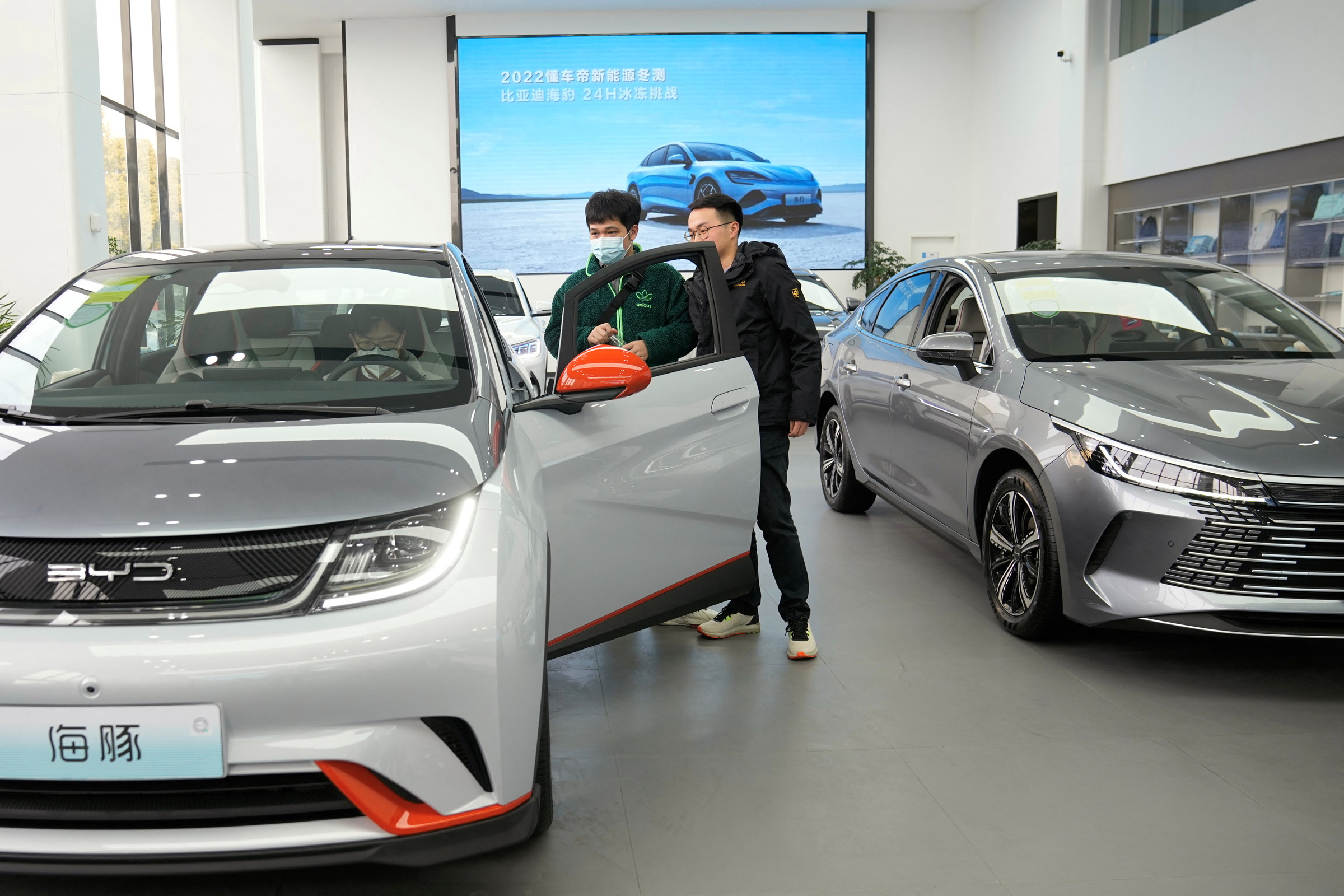On 10/9, Mexico announced plans to overhaul its tariff structure to protect domestic jobs. The plan includes a 50% tariff increase on vehicles imported from countries without a free trade agreement (FTA) with Mexico, including China, South Korea, India, Indonesia, and Russia.
Experts say this tariff, expected to apply to both electric and gasoline-powered vehicles, will primarily impact Chinese-made electric vehicles sold in Mexico. Meanwhile, the "Big Three" US automakers – GM, Ford, and Stellantis – are expected to be unaffected due to a 2003 decree.
This decree allows automakers with Mexican factories to import a certain percentage of vehicles tariff-free from non-FTA countries. The Big Three all have plants in Mexico, while Tesla and BYD do not.
According to market research firm Gasgoo, in the first 4 months of the year, Mexico was the largest export market for Chinese-made automobiles, importing nearly 38,500 vehicles, a year-on-year increase of over 24%. BYD led this growth.
This surge occurred despite a tariff increase on Chinese auto imports to Mexico from 0% to 15% over the past year. However, experts believe the 50% tariff could reshape North America's fastest-growing auto market and curb BYD's rapid expansion.
 |
A BYD dealership in Shanghai in 2023. Photo: Reuters |
A BYD dealership in Shanghai in 2023. Photo: Reuters
Both BYD and Tesla's plans to open factories in Mexico are currently stalled. Tesla halted construction of its northern Mexico plant last year due to high interest rates and a weakening global economy. The project was once slated to be their largest global factory, creating an estimated 6,000 jobs.
Since mid-2023, all Model 3 and Model Y vehicles sold in Mexico have been produced at Tesla's Shanghai plant, according to Salvador Rosas, vice president of the Tesla Owners Club of Mexico. He predicts that Tesla, under CEO Elon Musk, may stockpile vehicles in Mexico to allow time to shift imports from other global factories.
BYD also announced plans for a Mexican factory in 2023 but canceled them earlier this year due to opposition from the Mexican government. Officials were concerned that approving a Chinese factory could anger then-US President Donald Trump and damage trade relations with their neighbor.
BYD cited uncertainty surrounding Trump's trade policies as the reason for halting the project. Beijing also expressed concerns about technology transfer to Mexico.
Despite this, BYD has experienced explosive growth since entering the Mexican market in late 2023. The company sold around 40,000 vehicles last year, accounting for nearly half of all electric and hybrid vehicle sales in the country. Their sales in August continued to double compared to August 2024.
China recently urged Mexico to "think carefully" before implementing the tariff, warning that the move would "seriously affect the business environment".
Flavio Volpe, president of the Automotive Parts Manufacturers' Association of Canada, believes the new tariff will be viewed "very positively" by the Trump administration as it would make it easier for US automakers to compete with BYD. "The only market still growing in North America is Mexico," he said.
Phien An (Reuters)












